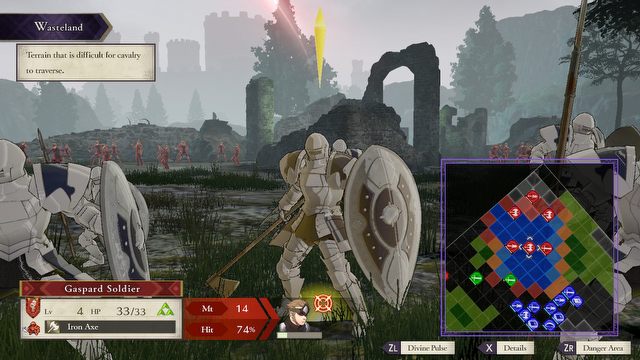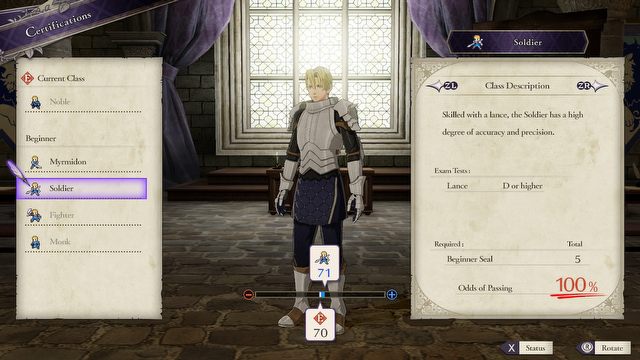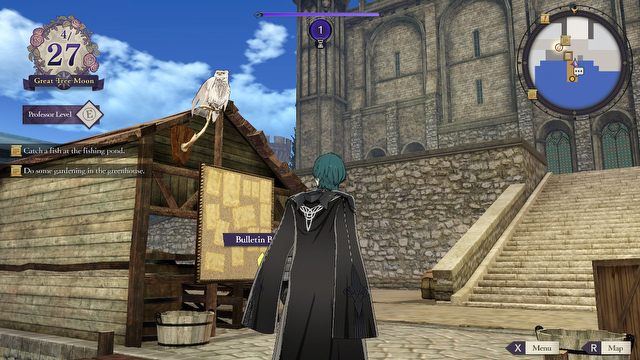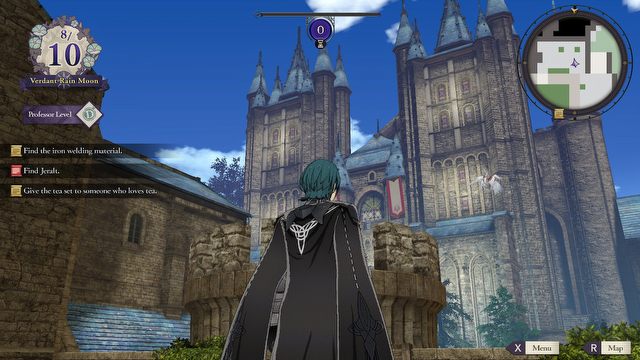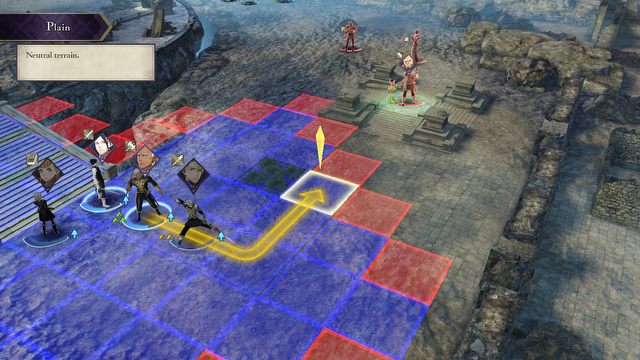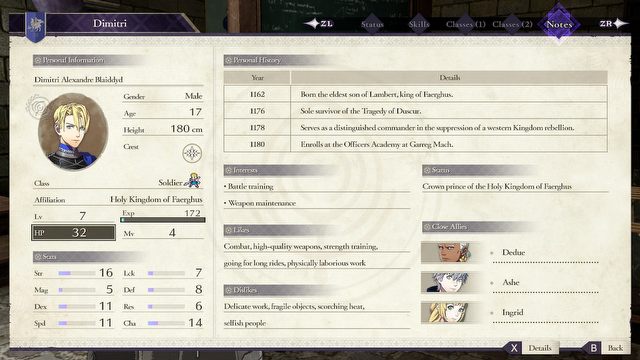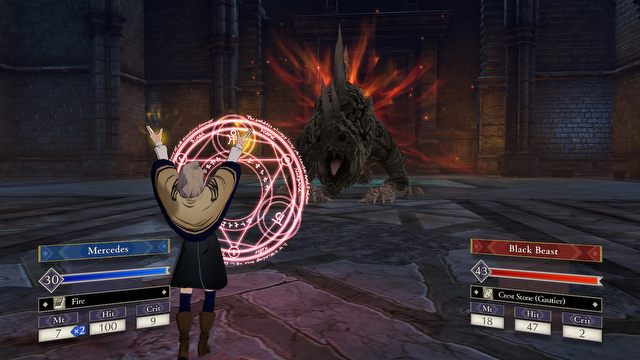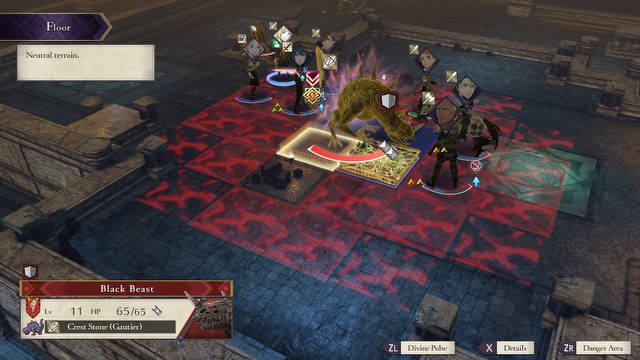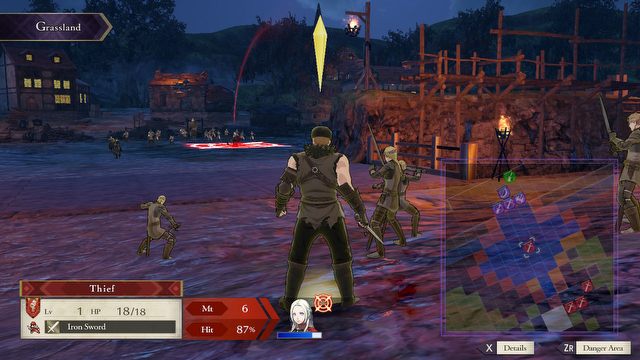author: Przemyslaw Zamecki
Fire Emblem: Three Houses Review – Decent Tactical Adventure
The Fire Emblem series has been well-known to fans of excellent tactical games for years. With Nintendo Switch's hybrid consoles, the taste of well-designed tactical has a chance to appeal wider group of players.
The review is based on the Switch version.
- top-quality tactical gameplay;
- personalization of dozens of characters – each with its own history, flaws, advantages, doubts...;
- a lot of side activities;
- tables, numbers, calculations – all for keen strategists;
- the possibility of leading each of three available sides, which allow you to experience three stories with different endings, apart from the main plot;
- excellent visuals of animated cutscenes;
- perfect voice-over of dialogues – both in Japanese and English versions;
- bunch of fun for many weeks;
- endless running around the same locations – fortunately partly compensated by the helpful localization system of all characters and a fast travel;
- quite often combat doesn't require sophisticated tactics – then the "fire at will" option works best;
- although important from the point of view of companion development, all side activities are mercilessly tedious;
- for the first ten hours, the plot is in a "static" phase.
Fire Emblem. I've been hoping to play some part of this series for a long time, but in the case of the newer ones I was discouraged by the requirement to play on a portable device. To be honest, I've never enjoyed playing on mobile gaming platforms. At least in case of titles where statistical tables and numbers are common features. However, when I had the opportunity to get acquainted with the latest installment of this franchise on the hybrid console by Nintendo, I willingly gave it a go. And you know what? It was a brilliant decision, because on the big screen the game does not lose anything of its charm, and my eyes have a chance to peacefully wait until I retire.
Three Houses made a very good impression on me from the very beginning. In part, perhaps, because it gave me completely new, previously unknown sensations. As I went deeper into the rules of the game world, my fascination grew, but I'm sorry to say that the game also contains a lot of dull stages that may be rejected by people who are not fond of unique Japanese productions. However, after we overcome our weaknesses, it will turn out that this is a large title. You can spend long months with it, gradually dosing yourself with a lot of impressions – I encourage you to do so even know, at this very moment.
Officers factory
In the game we play the son of Jeralt, the former captain of Knight Seiros, who after many years of absence returns to the church academy which trains officers from three factions that rule the continent of Fódlan. A teenage boy or girl, because the game allows us to choose the sex of the hero, thanks to some personal perks and attributes becomes one of the professors (just after arriving at the place). Your task is to train recruits from the chosen faction. By the way, our hero learns a variety of combat techniques after advancing to higher experience levels.
Garreg Mach Monastery, where the Academy is located, is a bit like Hogwarts from the Harry Potter series. During the following months you train your students as well as yourself. In your free time you run around the available locations and play a variety of mini games. You may perform a lot of side quests and activities (which usually have point A to B objectives). Additionally, you can watch white owls flying over your head. Also, the idea of three different factions competing against each other is directly taken out of the books about a small wizard, which in my opinion isn't saying much for developers. It's just a small digression, because the plot and game mechanics are addressed to a slightly older audience. However, some infantile moments and typically Japanese embarrassments can be found here as well.
For the first few hours of the game I just felt lost. The pop-up tutorials that suddenly appear every now and then help you to get to know dozens of statistics and skills, but if you want to understand all the relationships between them it may become a tough challenge and requires some experience from training and tactical battles. Nevertheless, don't be surprised if you see a new tutorial after fifteen hours of gameplay, because for the first time you have encountered monstrous beast that require a more complicated approach than most enemy bandits or soldiers. As a matter of fact, it also makes it difficult to complain about the quality of gameplay. Becoming a professor, we receive a huge influence on what our students are going to learn, how we manage their morale – because morale is a main factor that mainly decides about the learning pace of specific skills.
ASSIGNMENT CEREMONY
Shortly after the start of the game, you face a dilemma as to which of the three factions to join in order to lead it into the battle. The Academy trains three nations living in the continent of Fódlan. These are Imperial Black Eagles, Blue Lions of the Holy Kingdom of Faerghus and Golden Deer representing the free peoples of Leicester. Choosing one of the houses determines the gameplay style. The Imperials specialize in magic, the Lions focus on the striking force of steel and cavalry, while Leicester prefers ranged combat with trained archers.
Teacher by vocation
It is nice to observe how our decisions raise the statistics of the characters. When the individual lesson ends with a great score, the skill points are multiplied by two and one of the progress bars is filled, you can compare this moment to a juicy headshot in FPS game.
Unfortunately, the game definitely sins with the necessity of excessive running over the same locations. Monastery and Academy may not be very extensive in terms of size, but repetitive search for small items or minor objectives around every corner gets quite dull and frustrating. In order to slightly diminish these feelings, an efficient system of fast travel was implemented in the game. Thanks to this, you run a little less, but you witness loading screens all the time, which is also quite irritating. Sometimes you have to run a lot in order to find a lot of items or to put it simply – useless junk. It's being used to improve relationships with students.
I wish I could get rid of this whole running stuff, replacing it with several screens symbolizing the dining room, factional houses, stables, auditorium, cathedral and everything else, between which player can move with a single click.
Scale of the challenge
The game offers two levels of difficulty – normal and hard. Depending on whether you are a beginner Fire Emblem adept like me or maybe you're an expert of this series, you may choose the difficulty level according to your own preferences. However, this is not the only major element that determines the issues and difficulties that await you for the next few dozen hours. The key is to decide whether you want to play in casual or classic mode. Not reflecting too much, I chose the second one, of course. Me, a veteran of games like XCOM, Laser Squad, Jagged Alliance could get defeated by some animated fairy tales? Give me a break. Argh... And that was the mistake which put me into a state of total trauma. It pushed me so hard, that I even wanted to throw out my Switch console through the window (even with breaking the glass, oh dear). Let me explain.
The classic mode means that if your character get defeated in a battle they die permanently. Actually, it's not a literal death, because you may still find these people in the corridors of academy, but they cannot be recruited again. They are completely and irretrievably lost. Therefore, one of the most urgent tasks is to quickly establish a high reputation among the competition, which will allow you (after many tries) to recruit heroes from the other two factions. However, before it will be possible it may take about twenty or more hours of gameplay, during which you certainly can lose important characters. Disintegrated team is a huge problem and when it turns out that the heroic composition of your class has only four people after twenty or so hours of playing – it's easy to throw the game into the corner. So I'd rather recommend that you put your pro gamer pride in your pocket and choose a casual gameplay mode. Thanks to this, the eliminated characters will return to the team alive and in full health after the battle is over.
Individualists
I have a lot of respect for the developers that they've managed to implement unique character personalities into the game. This way, they cease to be anonymous blood donors on the battlefield and become fully-fledged members of the academic community. Each person – not only from our faction – has his or her own disadvantages, advantages, weaknesses and mysteries of their past. We get to know them by conducting hundreds of conversations. Such dialogues may become tiring, and sometimes they can completely dominate the game for a long time. With each of these characters we can establish different relationships. Bah! They also have these relationships with each other. Some people are fond of each other, others don't. And imagine, unlike many other Japanese games, all dialogues have received a 100% voice-over. Both in English and Japanese – a mandatory thing for purists. It's hard not to be impressed by the scale of enormous effort that had to be put into it.
As if that weren't enough, individual characters often propose a type of training themselves, which results directly from their aspirations and desires to achieve a particular position. Characters who learn things that they propose, advance a little faster than the others and have higher morale, which allows for additional training.... and so on. It seems very plot-wise and reasonable according to the main story, but sometimes it causes a very uneven increase in the skills of individual members of the class. Perhaps I made a few mistakes myself in making the wrong decisions regarding this matter, because during my battles, the difference in experience gained between the best and the weakest students was as high as ten levels.
At the beginning I've lost a prominent archer who was somehow connected with one of the most important antagonists. A nicely developing story was suddenly interrupted. They both died in the same battle, and I was no longer able to find out why the enemy decided to betray his faction. If my archer had survived, there might be a chance to ask him about it. Fire Emblem contains a lot of contextual events that may be triggered in convenient conditions. You will skip dozens of them, cause something that could trigger an interesting part of the story may simply not happen. Again, hats off for this gigantic endeavor.
How lovely it is to take part in a war...
All right, the title of this section is a little overstated, because the visuals are not that stunning, even if we take into account only the competition from the Nintendo console, but that's not the point. Lovely war means a rather deep system of game mechanics responsible for tactical turn-based battles. In this respect, Three Houses has a lot to boast about, although the whole thing is getting much blushing only after a dozen or so hours of fun.
During battles, there's no room for coincidences. Everything is carefully calculated and it sticks out like a sore thumb. It's a bit of a chess game, but we know all the moves of the opponent before he executes them. This forces the commander to precisely move the units in such a way as to maintain the initiative at all times. Which, of course, is not always possible.
Even sophisticated tactical actions are not necessary to achieve success. There are battles or fragments of larger battles when the best option is to form everyone in a single group and mindlessly move this mass of troops to crush the badly organized defense of your opponent. This may not happen all the time, but it can still discourage you from playing for a while. Sometimes, the odds may turn by 180 degrees. An almost victorious battle can end up with a total defeat, because before you kill the leader of the enemy faction (which usually ends the battle) one of your allied units controlled by the AI may wake up a powerful enemy. Most probably this opponent would be quietly sleeping somewhere in the corner of the map if it weren't stalked. Some facilitation in these cases is the limited possibility of reversing the time – your main character has such a skill. However, this ability is strictly limited and discharges very quickly – some fights can be extremely long and tedious.
DOGS OF WAR
During the battles your characters fight individually, but you can also hire a battalion of mercenaries specializing in some discipline. Individual battalions gain experience during battles, so they need to be replenished from time to time, replacing fallen soldiers. However, you may encounter a situation where a hero of a unit may flee from the battle due to the lack of leadership skills.
At a tactical level, the game has nothing to be ashamed of. Minor fails or bugs couldn't spoil my fun. Conversations between characters on the battlefield add an extra touch of flavor to battles, which makes the game a little more varied, although it also significantly prolongs the gameplay. Heroes, in addition to using a range of weapons in which they were previously trained under our supervision at the academy, also use special attacks, known as Combat Arts. These can be learned as characters gain experience. With one to two attacks they can massacre the enemy, but at the cost of faster wear of their weapon. Even one with extraordinary, magical properties, which is not worth wasting on standard enemy types.
A game worth playing
Does Fire Emblem: Three Houses deserve a few dozen hours of gameplay? If you are not afraid of Japanese quirks, you are able to withstand the characteristic line of visual design (including characters), hundreds of infantile (only sometimes) but necessary conversations with your trainees and activities like: fishing, growing plants in the greenhouse, eating soups in the dining room in order to improve the morale of your students, but above all you like a high quality tactical gameplay – yes! I am only concerned that the game may scare off potential players due to the extremely slow pace of the story, especially during the first ten hours, during which the aforementioned activities dominate, and only few battles may occur.
I'm glad I was able to get through that "iron curtain" which until now was blocking a plethora of solutions and features in games like Fire Emblem. I must admit that it required some effort on my part, especially after the unfortunate decision concerning the level of difficulty, which resulted in reducing my team to four people before the 20th hour of the game.
This game is either for avid Japanese fans or for those who like to explore unknown territories. Until now I belonged to the latter group, but it is possible that this will change, thanks to the latest titles of Intelligent Systems.
ABOUT THE AUTHOR:
Due to the fact that Fire Emblem: Three Houses was my first encounter with the series, I could look at the game not only from the point of view of its cult status among fans, but also from the point of how well it works as another title in which combat tactics plays a crucial role – regardless of the region the developer comes from. It took me more than 65 hours to write this review, during which I led the Holy Kingdom of Faerghus to battle, which puts a direct impact on the striking force of armored knights. The other two houses specialize in magic and ranged combat.
Przemyslaw Zamecki | Gamepressure.com
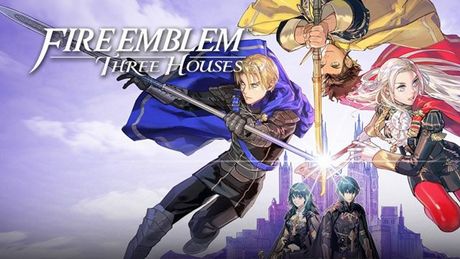
Fire Emblem: Three Houses Review – Decent Tactical Adventure
game review
The Fire Emblem series has been well-known to fans of excellent tactical games for years. With Nintendo Switch's hybrid consoles, the taste of well-designed tactical has a chance to appeal wider group of players.
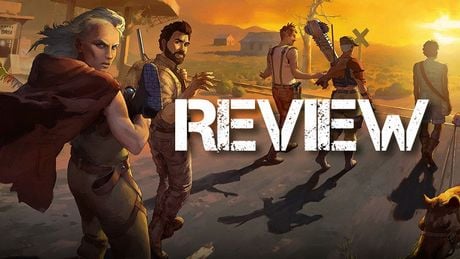
Broken Roads - Trite Post-apocalypse for the Very Patient and Understanding
game review
Broken Roads is an unfinished game that can be downright exhausting, entangling us in a plot without a reasonable cause-and-effect sequence and forcing us to play an errand boy. Only the most patient players can find their way in this post-apo.
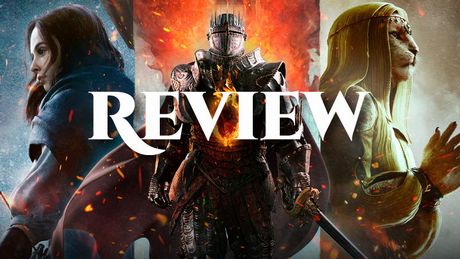
Dragon's Dogma II - Epic Game that Won't Engage Everyone
game review
Dragon's Dogma II is a gripping RPG that gets more addictive the longer you play. At the same time, the production faces technical issues, and the experience as a whole seems more niche-oriented at times.

